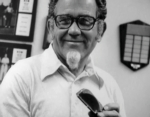Truth in Advertising
Posted in: Uncategorized Truth in advertising is, by some, considered an oxymoron. Like “deafening silence” or “clean coal.” Yet, each day commercials run that make outrageous claims, but nothing seems to be done about them. For instance, the ShamWow; the announcer pours a can of cola out on the table in a big pool. The camera cuts to the announcer as he asks, “Are you catching this camera-guy?” The scene cuts back to the table and half of the mess is mysteriously missing.
Truth in advertising is, by some, considered an oxymoron. Like “deafening silence” or “clean coal.” Yet, each day commercials run that make outrageous claims, but nothing seems to be done about them. For instance, the ShamWow; the announcer pours a can of cola out on the table in a big pool. The camera cuts to the announcer as he asks, “Are you catching this camera-guy?” The scene cuts back to the table and half of the mess is mysteriously missing.
The government agency in charge of false advertising is the Federal Trade Commission, and there are several pages on their website dedicated on spelling out what are, and are not, deceptive practices :
Under the Federal Trade Commission Act:
- Advertising must be truthful and non-deceptive;
- Advertisers must have evidence to back up their claims; and
- Advertisements cannot be unfair.
What makes an advertisement deceptive?
According to the FTC’s Deception Policy Statement, an ad is deceptive if it contains a statement – or omits information – that:
- Is likely to mislead consumers acting reasonably under the circumstances; and
- Is “material” – that is, important to a consumer’s decision to buy or use the product.
The FTC is also concerned with the roles that celebrity spokespeople play in selling products, and has instituted changes to “Tuides Concerning the Use of Endorsements and Testimonials in Advertising.” If a false claim is made by a celebrity, the FTC will hold the advertiser responsible for the misleading claim, but also expert and celebrity endorsers. 
Additionally, celebs cannot state that they love bacon and have it everyday for breakfast when they’ve never eaten bacon, nor would consider it as food. The same is true for the “magical time” continuum on TV: there has to be a reasonable semblance to the the truth. If Joe’s Bleach states that a stain will be lifted in thirty minutes, the trials have to be relatively close to this timeframe (ie, it can’t take a day). Celebrities will also be liable for what they do not say; if a professional baseball player shows up on a talk show and plugs a product, he has to state that he is a paid sponsor for the product.
With the proliferation of commercials on TV, it’s apparent that the FTC cannot enforce these statutes; however, Kellogg’s Cereal recently settled out of court due to claims that Frosted Mini Wheats boosted a child’s attention span by 20 percent versus children that did not eat breakfast at all.
Jeff Louis: Strategic Media Planner, Project Manager, and New Business Coordinator. His passion is writing, contributing to BMA as well as freelancing. He’d love to hear from you: linkedin.com/in/jefflouis or twitter.com/jlo0312..








 . The premise of this “game” was that the iPhone ”baby” cried and fussed loudly, not stopping until the iPhone user shook the phone vigorously.
. The premise of this “game” was that the iPhone ”baby” cried and fussed loudly, not stopping until the iPhone user shook the phone vigorously.





